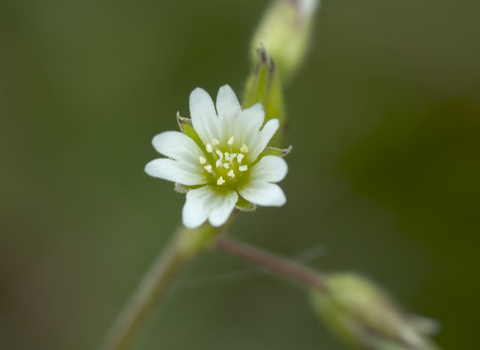
©Northeast Wildlife
Common mouse-ear
Common mouse-ear is a persistent 'weed' of fields and gardens, verges and hedgerows - all kinds of habitats. But, like many of our weed species, it is still a good food source for insects.
Scientific name
Cerastium fontanumWhen to see
April to SeptemberSpecies information
Category
Statistics
Height: up to 30cmCommon.
